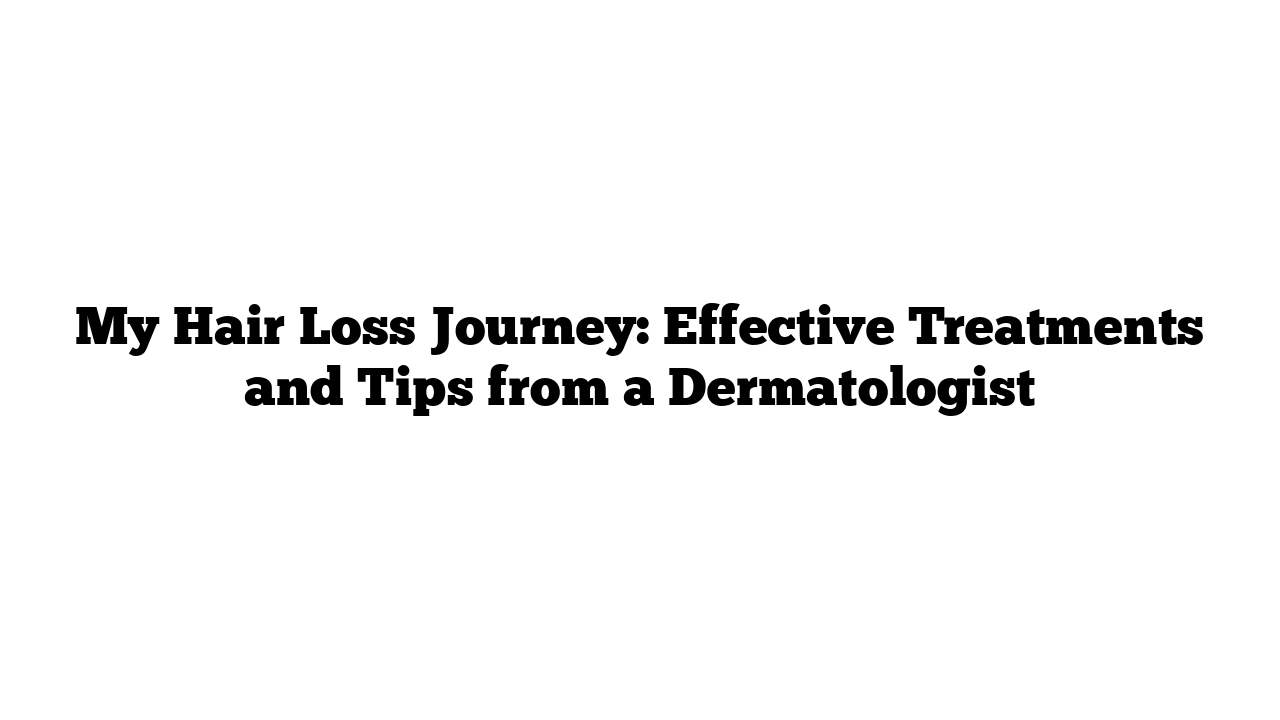If you’re experiencing hair shedding, hair loss, or even hair thinning, this article is for you! I’m Dr. Shelby Sheny, a board-certified dermatologist focused on cosmetics. Today, I want to share my comprehensive hair loss journey, the treatments I’ve tried, and tips that can help you manage hair loss effectively.
Understanding My Hair Loss
Over the past few years, I faced numerous stress factors that affected my hair health. From struggling with infertility and undergoing IVF to the challenges of motherhood, starting new businesses, and even battling COVID-19 three times, these experiences took a toll on my hair. I also have a predisposition to female pattern hair loss, characterized by thinning hair at the front due to androgenic effects.
The Importance of Long-Term Commitment
Before diving into specific treatments, it’s crucial to understand that not all hair loss is the same. The solutions I’ll discuss require long-term commitment; they are not cures but rather ways to manage and minimize hair loss over time.
Over-the-Counter Treatments
1. Minoxidil (Rogaine)
One of the most popular over-the-counter treatments is minoxidil, commonly known by the brand name Rogaine. Originally developed as a blood pressure medication, it works by widening blood vessels, increasing blood flow to the scalp, and prolonging the hair growth phase.
- Usage Tips:
- Apply consistently every day for best results.
- Expect initial shedding before seeing new growth, typically within 3 to 6 months.
- Consider using the men’s version for cost savings; it’s safe for women and often more effective.
2. Ketoconazole Shampoo
I also incorporated ketoconazole shampoo, which is primarily an antifungal treatment for dandruff and seborrheic dermatitis. Interestingly, it can act as a DHT blocker, helping slow down androgenetic hair loss.
- How to Use:
- Apply it to your scalp 2-3 times a week, allowing it to sit for a few minutes before rinsing to maximize effectiveness.
3. Living Proof Scalp Care Density Serum
This product surprised me with its effectiveness. I found it doesn’t make my hair look greasy the next day, unlike some other treatments. It’s designed to promote hair density and minimize the appearance of gray hair.
4. K18 Leave-In Hair Mask
As my hair became fuller, I wanted to avoid heavy conditioners that weigh it down. The K18 mask, formulated with SH-oligopeptide-78, helps stimulate hair follicle activity without adding weight.
Oral Supplements
In addition to topical treatments, I explored oral supplements. During my IVF journey, I took prenatal vitamins, which I believe aided in my hair growth due to their rich nutrient profile. Later, I switched to Neutrophil, which provides anti-inflammatory benefits and supports overall hair health.
Why Biotin Isn’t Necessary
A common misconception is that everyone needs biotin for hair growth. Unless you have a specific deficiency, it’s not essential. Focus on a well-rounded supplement that meets your nutritional needs.
Prescription Treatments
Oral Minoxidil
In April, I transitioned to oral minoxidil after discontinuing the topical version due to irritation. This change has made a significant difference in my hair health. However, consult your physician before starting oral medications, especially if you have any heart issues.
In-Office Treatments
Microneedling
Microneedling can promote hair growth, but it comes with the risk of breakage, especially if you have longer hair. It’s best for those with shorter styles.
PRP (Platelet-Rich Plasma)
PRP therapy involves using your own blood to stimulate hair follicles. It acts as a “fertilizer” for your hair, promoting growth through various growth factors. While it’s effective for many, results vary from person to person. I personally opt for PRP treatments twice a year to maintain hair health.
Styling and Protection Tips
To protect my hair from damage, I now use a heat protectant before styling. I also discovered a device on Amazon that helps me achieve those beachy waves without causing harm to my hair.
Conclusion
As I continue to explore and test new products, I remain committed to sharing my journey and findings with you. Hair health requires ongoing effort, but with the right approach, you can see significant improvements.
Stay tuned for my next article, where we’ll explore treatments for unwanted hair growth.
